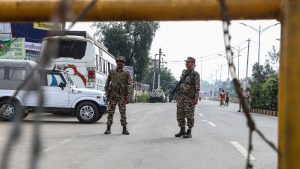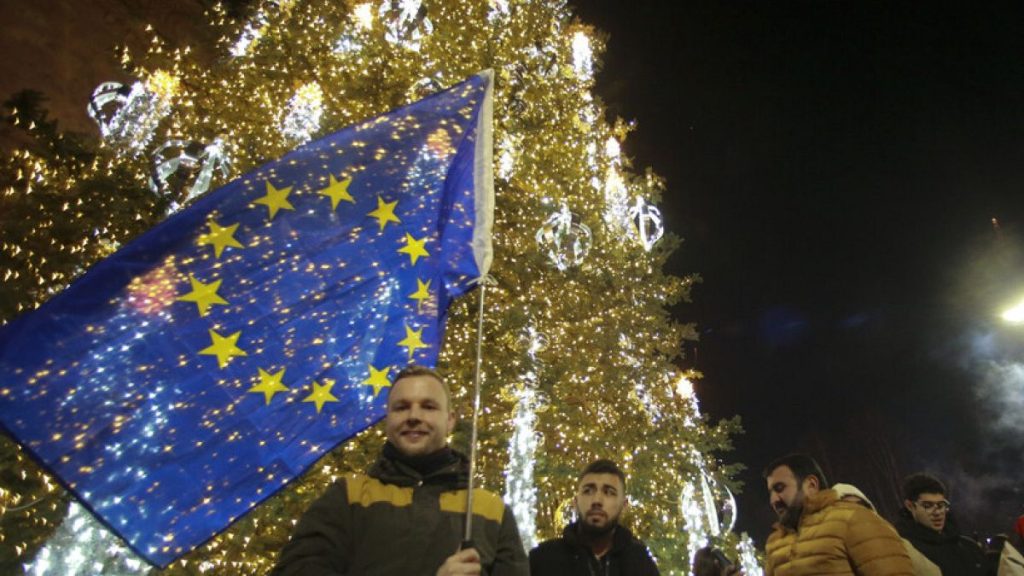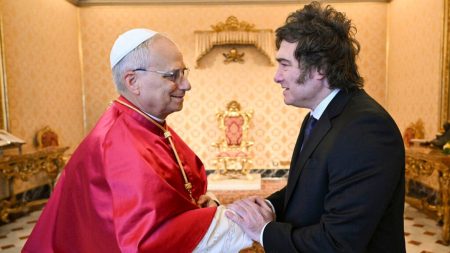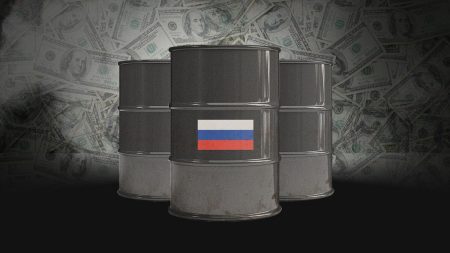The political landscape of Georgia has been embroiled in a tempest of protests and unrest since late November 2024, sparked by the ruling Georgian Dream party’s announcement of a four-year suspension of EU accession talks. This decision ignited a wave of public discontent, transforming the streets of Tbilisi, the nation’s capital, into a stage for daily demonstrations. These protests, often characterized by clashes between demonstrators and law enforcement, have persisted for over a month, with the New Year’s Eve marking the 34th consecutive day of demonstrations. The protesters, numbering in the tens of thousands, have persistently voiced their objections to the government’s move, demanding not only the resumption of EU negotiations but also the release of those detained during the demonstrations. This sustained public outcry underscores the deep-seated desire within Georgian society for closer ties with Europe and raises concerns about the country’s democratic trajectory.
The protests, while demanding political change, have also become a platform for displays of national unity and resilience. The New Year’s Eve demonstration witnessed a unique blend of protest and tradition. Protesters, while asserting their demands, also partook in a traditional Georgian feast, known as the Supra, sharing food and drink in a powerful demonstration of solidarity. This act symbolized their collective determination to persevere in their struggle and highlighted the cultural underpinnings of their resistance. The fusion of political activism with cultural expression provided a poignant illustration of the Georgian people’s commitment to their European aspirations while retaining their unique identity.
Beyond the streets of Tbilisi, the demonstrations have resonated internationally, drawing attention to the escalating political crisis in Georgia. Germany, France, and Poland, key European Union members, have expressed their concerns over the situation, condemning the violence against protesters and emphasizing Georgia’s obligation to uphold human rights and fundamental freedoms. Their joint statement not only criticizes the Georgian government’s handling of the protests but also signals potential repercussions, including the suspension of visa-free travel for Georgian diplomatic and service passport holders and considerations of further measures. This international response underscores the importance of democratic values and respect for human rights in the context of international relations.
The inauguration of Mikheil Kavelashvili, former Georgian football star, as the country’s sixth president adds another layer of complexity to the political drama. Kavelashvili’s selection as the Georgian Dream party’s presidential candidate just days after the controversial suspension of EU talks raises questions about the party’s motivations and its grip on power. While the presidency is largely ceremonial in Georgia, the timing of Kavelashvili’s appointment suggests a strategic move by the ruling party to consolidate its authority amid growing public dissent. This move further underscores the tension between the Georgian Dream party’s actions and the pro-European sentiments of a significant portion of the population.
The protests in Georgia reflect not only a desire for closer ties with the European Union but also a broader concern about democratic backsliding and the erosion of fundamental freedoms. The government’s response to the demonstrations, characterized by the use of force and the detention of protesters, has further fueled public anger and raised concerns about the country’s political trajectory. The international community’s reaction, particularly from key European nations, underscores the global significance of these events and the importance of upholding democratic principles. The situation in Georgia remains volatile, and the future course of the country’s relationship with the EU hangs in the balance.
The ongoing protests in Georgia represent a pivotal moment in the country’s history, highlighting the complex interplay of domestic politics, international relations, and the aspirations of its people. The demonstrations, sparked by the suspension of EU accession talks, have evolved into a broader movement advocating for democratic reforms and respect for human rights. The government’s response, characterized by a crackdown on protesters, has further intensified the situation and drawn international condemnation. The inauguration of a new president, handpicked by the ruling party, adds another dimension to the unfolding political drama. As the protests continue, the future of Georgia’s relationship with the EU and its trajectory as a democratic nation remain uncertain, underscoring the deep divisions within the country and the challenges it faces in navigating its political future.










